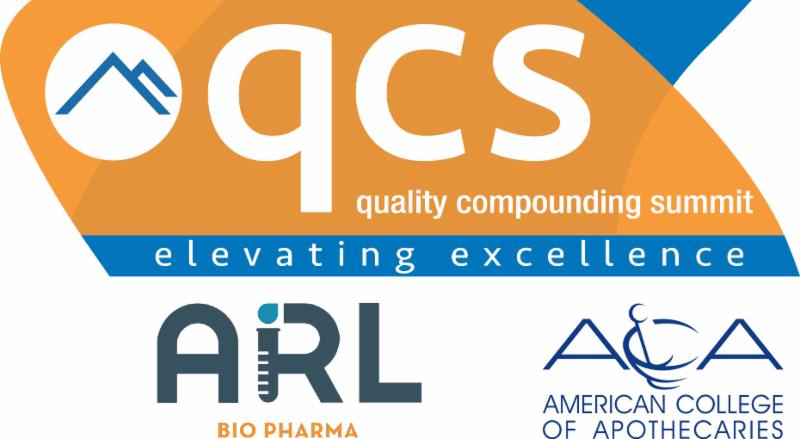|
|
|
August 2018 - In This Issue:
|
|
|
|
|
 |
Container Closure Integrity Testing (CCIT)
Qiang Liu, PhD, Research and Development Supervisor
The container closure system for a drug product provides critical protection for stability and sterility. Contaminants (such as microorganisms and reactive substances) could
potentially cross through defective container closures putting the drug product and patients at risk. USP chapter <1207> defines the concept of container closure integrity as "encompassing the absence of all package leaks that risk product quality". FDA also introduced container and closure system integrity testing in lieu of sterility testing as a component of a stability protocol for sterile products.
Among a variety of CCIT tests, dye ingress testing is one of most commonly used methodologies. During the test, the container closure test articles are put into an empty vacuum chamber to introduce negative pressure to the articles. This vacuum removes air inside the container/closure system. The vacuum is then released and methylene blue hydrate solution enters the chamber until it reaches atmospheric pressure. The articles are removed from the chamber, rinsed, patted dry, and examined for the presence of methylene blue through visual inspection or spectrometry. To pass the test, there must be no detectable methylene blue inside any of the tested container closure systems. ARL provides CCIT services for a variety of container types and compounds including colored compounds such as Methylcobalamin, Cyanocobalamin, and Mitomycin.
The sensitivity and applicability of CCIT methodologies varies based on container type, size, fill volume, and compounded drug product. ARL recommends and provides CCIT method validation services for clients' specific container closure system.
|
|
Avastin Stability and Release Testing
|
The FDA requires pharmacies and outsourcing facilities perform a formal stability study on repackaged Avastin (bevacizumab) exceeding the allowable 8-24 hour use period.
A stability study on Avastin must include the following tests:
- Appearance (Color and Clarity / Visible Particulates)
- pH (USP <791>)
- Subvisible Particles (Particulate Matter USP <788>)
- Protein Content
- Product-related impurities (Protein Aggregation and Protein Size and Charge Variants)
- Potency
- Sterility
- Endotoxin
Sterility, endotoxin, color, clarity, visible particulate, and subvisible particle testing are also required for the release of each new batch.
ARL is one of a select few labs in the industry that provides stability and release testing services as per FDA guidelines.
For additional information on Avastin testing services, contact ARL at 800-393-1595 or
[email protected].
|
Join us for Stability Studies: The Architecture Behind Establishing a Beyond-Use-Date Webinar
Thursday, September 20, 2018, 12 p.m. CST
|
This webinar will describe the thought processes that must occur to successfully design a stability study. We will begin by discussing how stability indicating methods, the foundation of a stability study, are developed and validated. We will then construct stability studies based on a variety of formulations and routes of administration. Please join ARL as we give a behind the scenes look at the architecture of stability studies.
1 hour of CE provided at no cost.
|
 Have you registered for the 2018 Quality Compounding Summit? Have you registered for the 2018 Quality Compounding Summit?
Join us October 5-6, 2018 in Oklahoma City!
|
The Quality Compounding Summit, presented by ARL Bio Pharma and the American College of Apothecaries, brings together national speakers for a two-day intensive focus on quality in sterile and non-sterile compounding. Industry leaders will speak on key topics selected to build your pharmacy's success including: best practices, safety, facility design, and regulatory issues.
2018 Educational Sessions:
- Update on the Development and Revision of USP Compounding Chapters - Jeanne Sun, PharmD, United States Pharmacopeia (USP)
- Current and Future Trends in Pharmaceutical Compounding - Loyd V. Allen, Jr., PhD, RPh, International Journal of Pharmaceutical Compounding
- Controlled Environments for Sterile and Non-Sterile Compounding - Kenneth S. Latta, BS. RPh, FIACP, FACA, ProPharma Cleanrooms, LLC
- Scientific and Technical Challenges in Compounding - Thomas C. Kupiec, PhD, ARL Bio Pharma
- The Practical Use of the USP as a Primary Reference Resource in the Formulation of Sterile and Non-Sterile Compounded Preparations - Kimberly Kieffer
- 503A/503B, USP/cGMP, BOP/FDA . . . Examples of Government Enforcement and What Not to Do - Tony Park, Pharm.D., J.D., California Pharmacy Lawyers
The Quality Compounding Summit will also have a speaker panel session and a round table discussion.
There are 9 hours of CE for this conference.
|
 |
|
|
Have you celebrated ARL's 20 years with 20% off?
|
To thank you for making our success possible, ARL is offering customers:
- 20% off USP <71> Sterility Tests method suitability
- 20% off USP <61> Microbial Enumeration Tests method suitability
- 20% off USP <51> Antimicrobial Effectiveness Testing method suitability
This discount is good through December 31, 2018.
Contact ARL for more information 405-271-1144 or
[email protected]
to request a quote.
|
|
|
Submit this coupon with your next sample for $25 off your next test with ARL. Cannot be combined with discounts or special offers. One-time use coupon.
|
|
Offer Expires 9/30/2018. (August Newsletter)
 |
|
|
ARL will be closed Monday, September 3.
We wish you and your staff a Happy Labor Day!
|
STAY CONNECTED


|
|
|
|
|